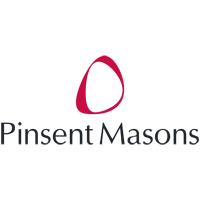

General counsel and company secretary | Wise




Dean Nash
General counsel and company secretary | Wise
Fintech, Sponsors and Investors | Monzo Bank
Team size: 9 Major law firms used: Hogan Lovells, Simmons & Simmons, Taylor Wessing Monzo Bank has seen meteoric growth since being founded in 2015, having already become the UK’s...
Team size: 18
Major legal advisers: Linklaters, Slaughter & May, Bird & Bird, Foot Anstey, Haug Partners, DLA Piper, Mattos Filo.
What are the most important transactions and litigations that you have been involved in during the last year?
Three projects stick out. The first is the work that we have done to build a legal operations capability in the team during Covid-19 at the same time as doubling the size of the legal team in the last twelve months. We have introduced a “legal front door” with self-serve guides, templates and standard clauses for the business around the most frequent work queries to free up the team to focus on some of the many large strategic projects that have happened this past year (and with many more in the pipeline) such as:
The largest transaction was probably a £320m secondary transaction in the summer that allowed a number of our early investors employees to liquidate some of their holdings at a £5bn valuation. It was especially pleasing to be able to give employees the option to liquidate in such uncertain times, and at the same time such a strong endorsement of Wise’s sustainable and customer-focused business model.
In addition, at the start of 2021 we rebranded from TransferWise to Wise. This was a major project for the legal team with substantial global trademark issues to clear and for the company secretarial team to re-name all of our many subsidiaries in multiple jurisdictions. Starting 2021 with a fresh new brand and name that reflected the wide range of products and services that we offer, beyond money transfers, was a fantastic start to the year – a fresh slate and renewed optimism after 2020.
What were the main steps you took to protect the business once it became clear we were in the midst of an unprecedented challenge?
The key word for us as we realised that Covid-19 was taking hold globally was “resilience”. Across three main pillars: (i) our operations, (ii) our finances, (iii) our people.
In terms of our operations, we are fortunate in that as a regulated financial institution we already take operational resilience into account but this forced us to take it much more out of the theory and into real life. The first was to analyse the many banking partners we use around the world to check that they were in good shape, as well as ensuring that all of our key payment routes had at least one back-up option. We also ran disaster recovery and business continuity exercises to stress-test what would happen, for example, if the entire leadership team were all struck down with Covid-19 at the same time.
In terms of our finances, fortunately this proved to be a largely modelling exercise to understand what legal levers we could pull to conserve cash if this was required. As a sector, digital payments has fared pretty well through the pandemic.
The largest focus was on supporting our people. One of our key competitive advantages is our ability to innovate and execute faster than our competition and this is a product of our talented workforce and our culture of empowerment and accountability.
As a digital-first, global company the transition to remote-working was relatively easy. However, there were two wrinkles (i) how to onboard the many new hires that constantly arrive at a high-growth company – this isn’t easy in such a fast changing environment, even without the backdrop of a global pandemic – especially as Wise has a uniquely autonomous culture that can be disorientating for new joiners, but also (ii) how do we keep engagement high after such prolonged periods of stress and possible loneliness. Significant life events continue to happen and supporting the team through those has been very tough. We took the decision to extend our compassionate leave policy and introduce health days to give people the space to unplug and navigate whatever their reality was in this bizarre year. We have also moved to a new hybrid working policy of two days in the office, three days at home and for three months of the year work anywhere in the world (subject to legal and tax restrictions).
How have you maintained your team’s cohesion when you have been unable to see them face-to-face as regularly as usual?
I was very lucky to enjoy a whole week in the office with the team, some of whom had travelled from foreign offices to help me onboard, after joining at the start of March 2020. We had a great offsite and got to know each other and planned out some of our strategic themes for the year ahead. I am very grateful for this as, although a few curveballs turned up during the year, for the most part we were able to anchor our focus and priorities back to those first few days at the start of March. We gave everyone the very clear framing of prioritising work that (i) speeds up legal service delivery, or (ii) materially reduces legal liability, or (iii) substantially reduces costs, or (iv) moves the needle on how the company operates in the future and that legal is uniquely qualified to lead on. With this framing we were able to give a huge amount of autonomy to the team to execute against these high level objectives as they felt able to give everything else they had to contend with in their lives. Provided we improved each of these pillars by a small step each quarter I was confident that within a year or so we would have undergone significant transformation.
We re-engineered team time to focus on cross-team learning based on the many fascinating projects ongoing at any one time. We called these “spotlights”. The objective is to try and recreate the ad hoc water cooler moments when you bump into a colleague and end up having a really rich and interesting discussion that uncovers synergies and dependencies that would have been missed if everyone was head down. The key was to be deliberate about finding ways to fill in the gaps of what was being lost without incidental face to face meetings. As well as the odd bit of cheesy Zoom games – that the team always groan and moan about, but I am confident they love them really…
Also, with a legal team distributed across the globe forcing everyone on to a level-playing field of remote-first actually improved team dynamics. There can be a danger when there is a concentration of a team in one office that the dynamics centre around that office with other team members relegated to bystanders. In some respects being intentional about how to optimise for a remote-first culture has made this disparity subside.
Although this slightly glosses over the very real journey we have all been on as a team. This was as uncharted territory for me as it was for the rest of the team and my leadership team have been a source of support, inspiration and humour for each other. We’d check in with each other and see who had some energy in the tank as they would take the lead with the team, like the front rider in a peloton while those who needed to internally focus a bit more could recuperate. It is easy to negatively ruminate on things when working remotely but I think we have been very deliberate about connecting, being vulnerable and authentic. In that space, we have actually had a great year as a team – able to provide calm counsel and leadership across a very fast-moving business. Our standing and presence in the organisation has improved over this period as evidenced by our leading role in many company defining projects. We are in a solid position looking ahead to 2021 and beyond.
Did the Brexit deal reached at the end of 2020 give you and your business greater clarity for the future?
Wise is a global company and although the UK and Europe is an extremely important market for us, we also see high growth in other key regions like APAC and Latam. Brexit essentially bifurcates our European business into the UK and Europe, with a larger portion of that business now legally residing in Europe than before.
However, we are headquartered here and consider the UK to be an attractive environment to build a global technology company, forward-thinking regulators, deep professional infrastructure, access to capital and a lot of talent in both financial services and technology means that the UK is still the most attractive jurisdiction for Wise.
In what ways do you see the in-house legal role evolving over the next few years?
I believe that the stratification of services that has been happening in private practice for some years will become commonplace for in-house environments too – with high value strategic work supported by deeply embedded trusted business partners and more routine tasks serviced at a lower cost base, including the use of alternative legal services providers. We have already had great success with this model.
I also believe that the general counsel and the wider legal team have an opportunity to be a sponsor and spearhead for ensuring ESG considerations are embedded into the business. The executive are often perceived as a guardian or moral compass of an organisation, and it would be a wasted opportunity for general counsels to not grab the ESG challenge as both a moral and business imperative. This last year has only highlighted this even further. In my mind ESG is as constitutionally important as the rule of law and as lawyers we have a duty to uphold it.